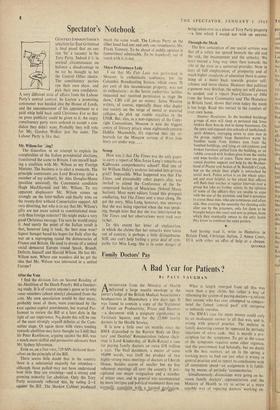After the Vote I find the division lists on Second
Reading of the Abolition of the Death Penalty Bill a fascinat- ing' study. It is of course anyone's guess as to why some members (about ninety) abstained from the vote. My own speculation would be that many, probably most of them, were convinced by the case against capital punishment, but wanted Par- liament to review the Bill at a later date in the light of our experience. Ni,doubt this will be one of the most strongly argued debates at the Com- mittee stage. Or again those with views tending towards abolition may have thought (as I did) that Sir Peter Rawlinson, arguing against the Bill, was a much more skilful and persuasive advocate than Mr. Sydney Silverman.
Even so, on a free vote, 529 MPs declared them- selves on the principle of the Bill.
There seems little doubt that in the country there is a substantial majority for retention— although those polled^ may not have understood how little they arc retaining—and a strong and growing minority for abolition. Only the Tory Party accurately reflected this, by voting 2-1 against the .Bill..The .Shadow Cabinet produced.
much the same result. The Labour Party on the other hand had one and only one retentionist, Mr. Frank Tomney. To be ahead of public opinion is (sometimes) admissable. To be hopelessly out of touch with it, is not.






























 Previous page
Previous page